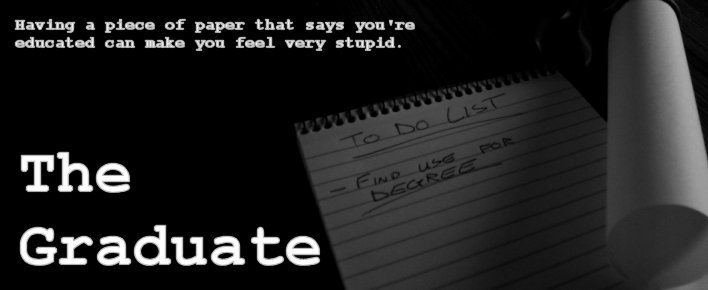Even when I was at primary school writing stories as part of our education in English, part of me knew that “It was a Dark and Stormy Night” was the default way to set a dramatic mood. The rest of me knew that you never rely on the defaults for these sorts of things unless you want it to look like everything else. This sort of cliché can take a lot to break out of and you can find yourself slipping into it by mistake; after all, the reason it’s a cliché in the first place is because everyone else has done it first.
Nobody expects the cliché
I have had experience in the field of doing-things-everyone-else-has-done-first. For a long time now, I have run a webcomic as a hobby. It’s a fantastic method for teaching one how to draw and how to make websites and see what does and doesn’t work with compositions. I’ve learnt a huge amount from updating my comic over the last two years, even if I haven’t kept up with it on a regular basis, but I think I have also inadvertently created a complete catalogue of every single webcomic cliché out there.
In no particular order, there is an author self insertion character, the main female character tends to be violent, the predominant subject matter is a group of friends living together, it has a mad-cap inventor character, it has ninjas and relatively two dimensional characters with minimal development beyond things happening to them. For the uninitiated, that is a description of pretty much every single webcomic out there, with the only exception being that mine doesn’t have a constant discussion of video games.
I didn’t sit down and design it this way. I didn’t think carefully about what to put in. It just happened. Of course, not thinking about what to put in is exactly what landed me with the samey-mess in the first place. My only excuse is that I’ve never really taken my comic seriously where others do and that there is a certain degree of work that goes into it, as I very rarely copy and paste images and everything except the formatting, lettering and coloring is done by hand. Upon writing that, I can see that might make it seem like my comic is entirely digital, but the drawing and design is all done by hand which is still the significant part.
How to Avoid it
This could sound preachy, but I feel I can offer this advice because I’ve made the mistakes already.
1) Be aware of existing clichés and stereotypes: Study other ideas, creations or whatever it is you’re trying to do and try to identify common trends. I didn’t really notice the similarities between several different webcomics until they were pointed out to me and had I realized before, I would have taken a conscious effort to avoid them.
2) Don’t be afraid to abandon an idea even if you think it was a good one: There’s nothing wrong with a cliché if it’s done well, but you have to realize that your work will be judged against work that is already out there and will be judged harshly as a result.
3) Don’t be afraid to try something completely different: I’m repeating the point above really, but don’t be scared to shake things up a little. Sometimes you can shake things too far, so keep it within the realms of your genre, but don’t be afraid to experiment.
4) Plan things through: My inner youth cries out in pain as I offer this as advice. Everyone tells you to plan things through, and no one listens, and I do include myself in that definition of no one. I always used to write in a freeform manner which came across as rambling and directionless. Not only that, but when you don’t plan, you accidentally fall back on all those tried and tested ideas automatically and your creativity is completely stifled.
I’m repeating myself again, but there is nothing wrong with a cliché. Some people manage to make a formula work exceptionally well for them. You look at the Simpsons for example: That took the very standard and basic premise of a family sitcom and turned it into something that had never really been seen before, even when you consider that it’s heavily influenced by the Flintstones, which in turn was influenced by the Honeymooners.
There are, of course, no new ideas, but there are some incredibly over used ones.
Additional Notes:
When I was writing stories at primary school, my first book was how I learnt to spell the word “suddenly”, as it was the only way I could convey action, and all action happened suddenly throughout the book. It was fast paced in the way that arrhythmia is fast paced, haltingly and unhealthily.
Whilst writing this, I really struggled to find another way of saying cliché. Ironically enough, I seem to be working to turn the work cliché into a cliché itself.
I always used to write in an incredibly rambling way. Now I just write in a rambling way. A subtle difference, but you would notice if I abandoned my planning phase again.
Subscribe to:
Post Comments (Atom)




No comments:
Post a Comment